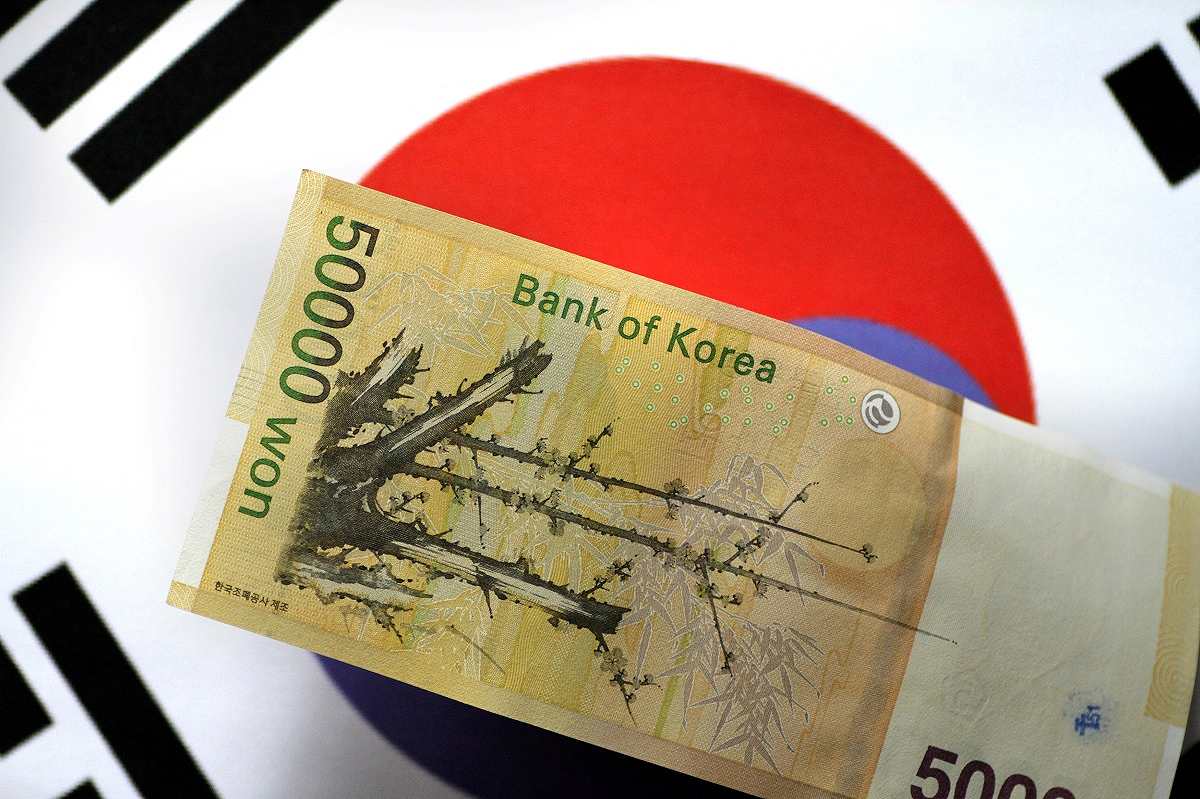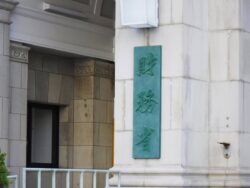
A South Korea won note is seen in this illustration photo May 31, 2017.
11:44 JST, February 23, 2024
SEOUL, Feb 23 (Reuters) – South Korea hopes to mirror Japan’s efforts to boost the value of its companies as the neighbor’s stock market surges to a record high, with measures Seoul hopes will narrow a “Korea discount” on stock prices.
But while years of effort at pushing Japanese companies to be more responsive to shareholders have helped lift Tokyo shares above their 1989 “bubble”-era peak, the reforms floated last month by South Korean President Yoon Suk Yeol may not continue to boost the Seoul bourse, analysts say.
The benchmark KOSPI index hit a more than 20-month high this week on optimism over the “Corporate Value-up Programme,” to be announced on Monday, but some market participants are bracing for investors to take profits next week. They suspect gains may not continue beyond national elections in April.
“At this stage, we can’t be sure how consequential the value-up program will be for the corporate sector,” Societe Generale analysts said. “What we can say with greater confidence is that the probability of a re-rating has increased.”
The analysts cited two encouraging factors that could make this program different from previous, failed reform efforts: the example of Japan and higher retail investor participation than the past.
The reforms aim to unlock value in South Korean companies, which have underperformed their global peers largely due to poor decision making and weak governance by the country’s opaque chaebol conglomerates.
Yoon also wants to cheer domestic retail investors, who have been heavy sellers of Seoul shares. Signs of reform have accelerated purchases by foreign investors.
Corporate reform is a major reason Japan’s benchmark Nikkei stock average broke its 34-year-old record on Thursday, marking a 17% spike so far this year after surging 28% in 2023.
Some analysts say Seoul’s program, the latest in a series of steps since late last year, could provide greater upside potential than in Japan, but they warn that reforms must have teeth to make a real impact.
FOLLOW-UP NEEDED
The measures will nudge listed companies with low valuations to report plans to boost corporate value, and will introduce an index of firms with strong shareholder value, the Financial Services Commission says.
The government is considering tax incentives to encourage companies to return more to shareholders, the finance minister said last week. Also planned are individual savings accounts with tax breaks on dividend and interest income from local stocks.
Some companies are responding. Hyundai Mobis, Samsung C&T, and SK Innovation are among firms announcing plans this year to cancel 3.4 trillion won ($2.6 billion) worth of company-held shares – boosting share value by reducing supply – compared with 4.9 trillion won for all of 2023.
“Valuations could be boosted by at least 25% if we assume Korean deep value sectors drift towards even half the valuations of their Taiwanese counterparts,” HSBC analysts said in a note.
Monday’s measures will likely bolster confidence that South Korean reforms can be sustained, Morgan Stanley analysts said, but without follow-up the KOSPI will be kept “range-bound but lean slightly to the downside due to some level of profit-taking, with the focus turning more to stocks that really matter on the reform drive.”
The KOSPI rose 19% last year, underperforming the Nikkei and the U.S. S&P500. In 2022, its performance beat only Russia among the Group of 20 big economies.
Domestic retail investors sold a net 13.8 trillion won ($10.4 billion) of local shares last year, their biggest sell-off in 11 years. So far this year, they have sold 5.1 trillion won, while their purchases of record high U.S. stocks have more than doubled from the same period last year and they have scooped up Japanese shares.
Foreigners, by contrast, bought 11.3 trillion won of South Korean shares last year and have already added 10.2 trillion won so far in 2024 – 6.7 trillion won this month alone.
To sustain the momentum, the authorities should consider requiring, not just encouraging, change, analysts say. Hurdles include high inheritance taxes and greater family ownership of companies than in Japan.
“The government has come up with a well-drawn blueprint. Now it needs to bring carrots and sticks that will really change the companies,” said Han Ji-young, an analyst at Kiwoom Securities.
"News Services" POPULAR ARTICLE
-

American Playwright Jeremy O. Harris Arrested in Japan on Alleged Drug Smuggling
-

Japan’s Nikkei Stock Average as JGB Yields, Yen Rise on Rate-Hike Bets
-

Japan’s Nikkei Stock Average Licks Wounds after Selloff Sparked by BOJ Hike Bets (UPDATE 1)
-

Japanese Bond Yields Zoom, Stocks Slide as Rate Hike Looms
-

Japan’s Nikkei Stock Average Buoyed by Stable Yen; SoftBank’s Slide Caps Gains (UPDATE 1)
JN ACCESS RANKING
-

Keidanren Chairman Yoshinobu Tsutsui Visits Kashiwazaki-Kariwa Nuclear Power Plant; Inspects New Emergency Safety System
-

Imports of Rare Earths from China Facing Delays, May Be Caused by Deterioration of Japan-China Relations
-

University of Tokyo Professor Discusses Japanese Economic Security in Interview Ahead of Forum
-

Japan Pulls out of Vietnam Nuclear Project, Complicating Hanoi’s Power Plans
-

Govt Aims to Expand NISA Program Lineup, Abolish Age Restriction























